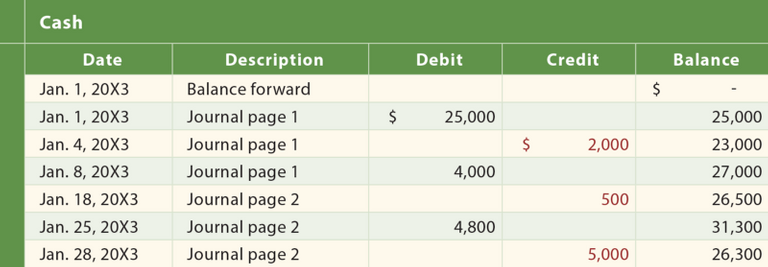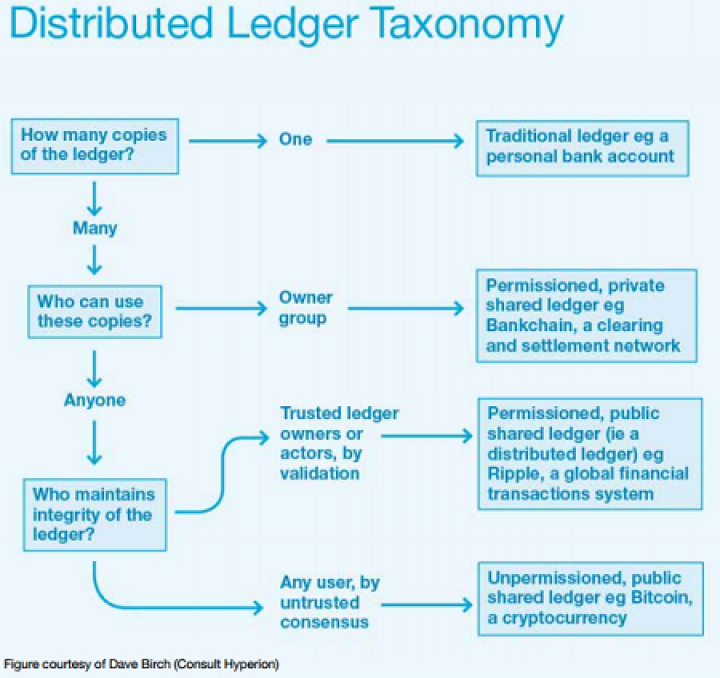The difference between a distributed ledger and a business ledger

A distributed ledger is a database that is shared, replicated and synchronized between the members of a network. A distributed ledger records the transactions among all participants in the network. All participants in the network govern and agree by consensus on any possible updates to the records in the ledger. There are no third-party mediators (i.e. central authorities like a bank) and thus, it is truly a decentralized and egalitarian system. Every record in the distributed ledger has a timestamp and a unique cryptographic signature which makes the distributed ledger trustworthy, and verified across each node in the network.
With the globalization of the marketplace, business networks are losing boundaries. The usual business ledger consists of producers, suppliers, consumers, partners, and various other stakeholders that can exercise their rights on objects of value known as assets.
Assets can be physical: cars, vegetables, oil or intangible: patents, stock certificates, etc. Owning an asset and transferring it from one individual to another represents a transaction that creates value in a business network. Without distributed ledgers, transactions involve numerous participants: sellers, buyers and intermediates (banks, notaries, etc.). Their agreements and contracts are recorded in static ledgers owned by the central authority. Below is an example of a typical ledger.
The problems with current business ledgers are numerous: they are not efficient, they are not transparent and are subject to fraud and misuse. All of these problems arise because people rely on a centralized third-party system like a financial institution for the single “source of truth”.
These centralized systems lead to slowdowns of transaction settlements, a complete lack of transparency, susceptibility to corruption with endless disputes. Resolving disputes and reversing transactions are costly in time and money. Furthermore, each participant in the traditional network has a business ledger and they are often out-of-sync from one another. This causes poor business decision making due to lack of accurate data creating delays in the business process until different copies of the ledger are synchronized. In business, time is money; delays create a loss of profits.
Type of Ledger Flowchart
If this blog post has informed you or helped you to profit, please follow, share, and/or consider incentivizing me to write many more of these! Thank you for reading!!
BTC Wallet — 14i7M8Mh9ZCzgEYsdW6VRwM2GMtjZcQ5eC
ETH Wallet — 0xebd9b9de1807f8b61b1bf5a80bac35030bef14dc
LTC Wallet — LKszoJoBVv75a43aSLWsr4ytYzqHPdRhPp
Congratulations @cryptocoingenie! You received a personal award!
Click here to view your Board
Do not miss the last post from @steemitboard:
Congratulations @cryptocoingenie! You received a personal award!
You can view your badges on your Steem Board and compare to others on the Steem Ranking
Vote for @Steemitboard as a witness to get one more award and increased upvotes!